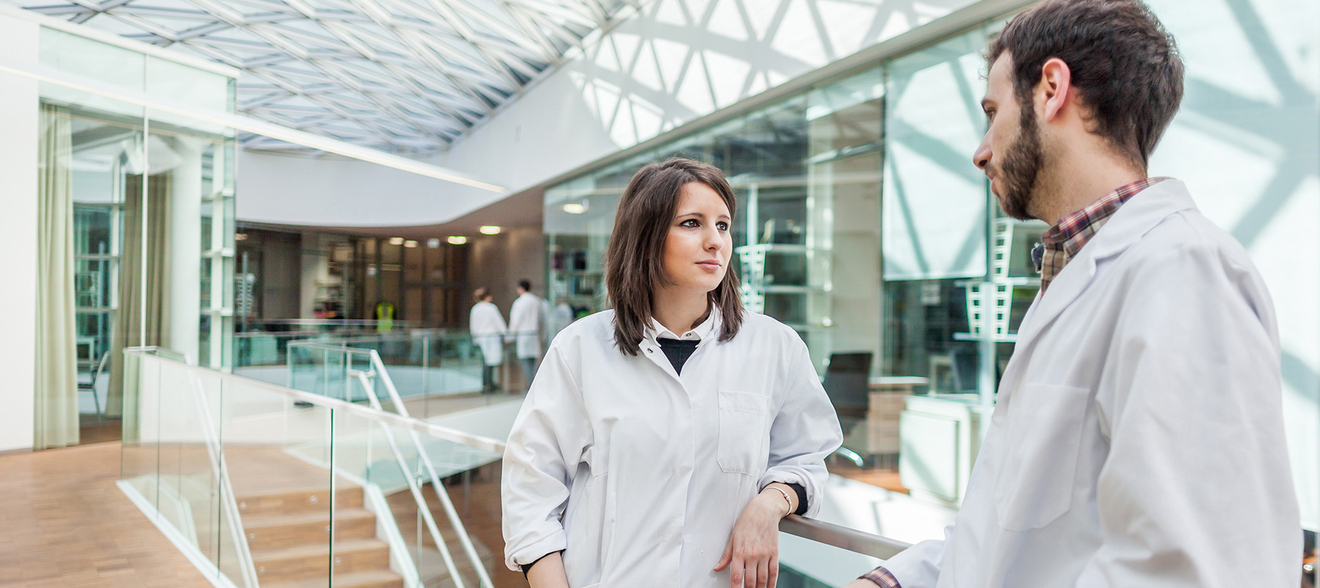
Strong Partners
The Cologne Graduate School of Ageing Research (CGA) in Germany is a joint venture of the University of Cologne Excellence Cluster on Stress Responses in Ageing-Associated Diseases (CECAD), the University Hospital Cologne, the Max Planck Institute for Biology of Ageing and the Max Planck Institute for Metabolism Research. Their close proximity maximizes opportunities for interaction and collaboration. The Cologne area has emerged as a leading global research centre with a stellar constellation of institutes and scientists dedicated to ageing research in Life Sciences.
MPI for Biology of Ageing
Deciphering the mystery of ageing
As one of 86 research institutes that are funded by the Max Planck Society, the MPI for Biology of Ageing aims to unravel the molecular, physiological and evolutionary mechanisms of the ageing process. We wish to find out how to intervene and even prevent age-associated diseases and how to pave the way for a healthier ageing.
Why do organisms age? How can we influence our life span? And how can we make use to stay fit and healthy as we grow polder? More than 300 employees are working at the MPI for Biology of Ageing aiming to decipher these questions by means of different model organisms and even human studies. The institute hosts more than 10 research groups, several affiliated members and the three main departments work on:
- Antebi: Molecular Genetics of Ageing
- Langer: Mitochondrial Proteostasis
- Partridge: Biological Mechanisms of Ageing
Curious? Join us for a virtual tour or find out more about the institute!
CECAD
Excellent in Ageing Research
CECAD is a Cluster of Excellence at the University of Cologne that is supported by the Faculties of Mathematics and Natural Sciences and the Faculty of Medicine. CECAD’s vision is to use the knowledge gained through basic research to develop new therapies for the entire spectrum of aging-associated diseases, including cancer, diabetes, stroke, renal failure, and neurodegenerative disorders.
Approximately 440 scientist are working on the common aim to unravel the mechanisms of human aging and its associated diseases. Many signaling pathways alter during a person’s lifetime and may become the trigger for disease. In its investigation of various aspects of cell aging, CECAD has defined three Research Areas that are exploring the key mechanisms of aging.
- RA-1: Cell autonomous control of homeostatic mechanisms and cellular stress responses in aging and age-associated diseases
- RA-2: Stress response mechanisms of tissue-related and interorgan communication in aging and age-associated diseases
- RA-3: Environment/organism interactions in aging and age-associated diseases
MPI for Metabolism Research
Elucidating neuronal circuits to maintain energy homeostasis
Funded by the Max Planck Society, the MPI for Metabolism Research is located on the Cologne Ageing Campus in close proximity to its collaboration partners.
The brain analyses nutrient-related and hormonal signals of the body periphery and controls not only the intake of energy but also coordinately regulates peripheral glucose metabolism. This central nervous control is complex and until now not fully understood. Research at the Max Planck Institute for Metabolism Research is dedicated to deciphering these most intricate neuro-circuits. Once neuronal signaling pathways of metabolism are completely understood not only in model organisms, but also in healthy people and patients, new molecular therapies for diseases such as type 2 diabetes and obesity may be developed in the long run.
The institute hosts 5 research groups and one departments:
- Brüning: Neuronal Control of Metabolism
Curious? Join us for a virtual tour or find out more about the institute!